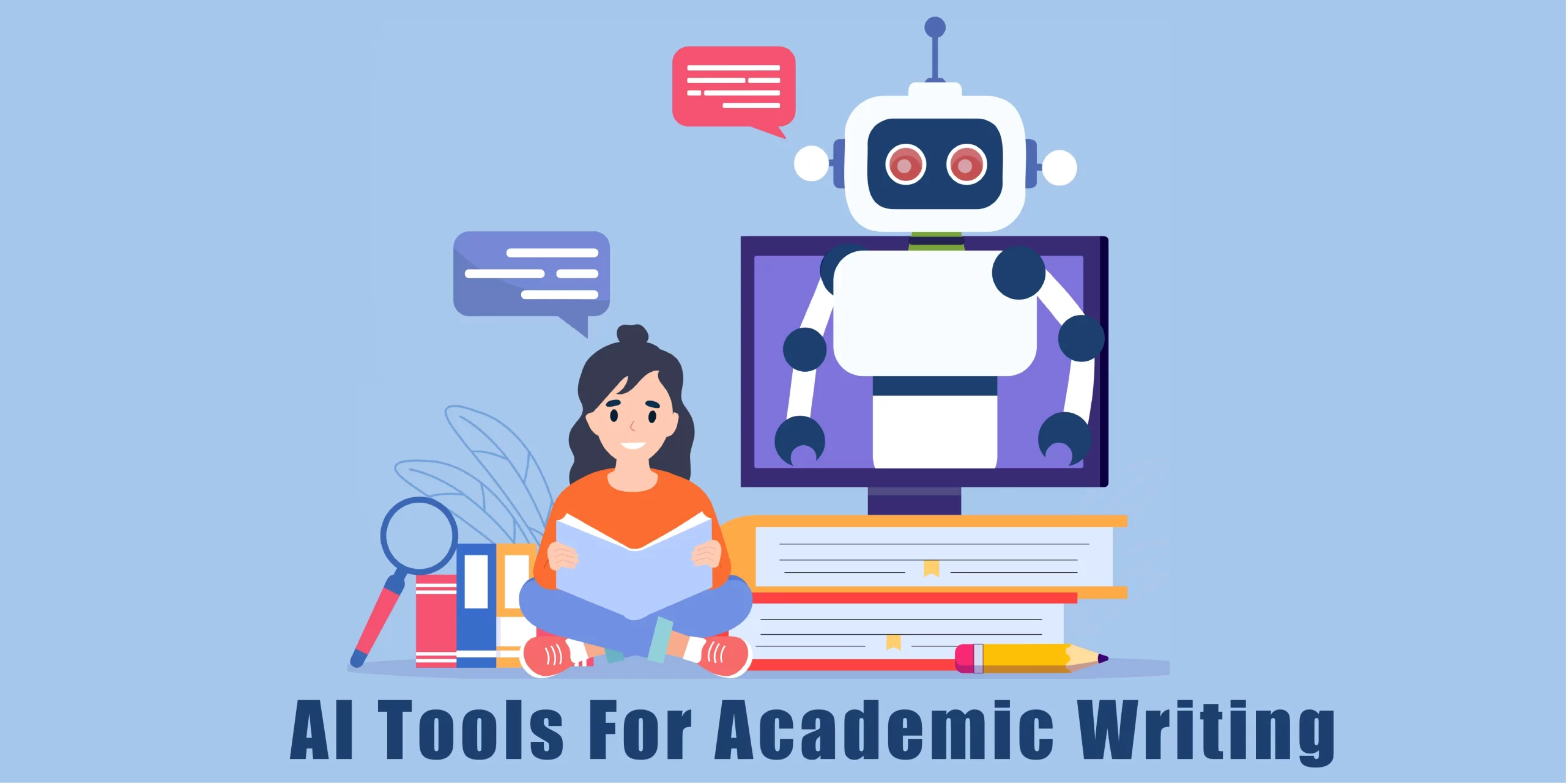In today’s digital learning environment, achieving top grades is more crucial than ever. With the increasing demands of academic life, students often find themselves juggling multiple assignments, online classes, and exams simultaneously. To succeed in this competitive academic landscape, it’s essential to master the art of academic writing and employ strategic study methods that can boost overall performance. Whether you’re striving to excel in your coursework or seeking additional support through services like online class help or exam help services, this article provides comprehensive tips and tricks to help you improve your grades.
Academic success hinges on several factors: delivering high-quality, well-structured assignments, adhering to strict formatting guidelines, and utilizing available resources like AI tools and professional writing services. With these elements in place, students can navigate the challenges of academic life more effectively. Additionally, online academic support services like do my homework or pay someone to take your online class offer valuable assistance to students who need extra help managing their workload. This article will delve into these strategies and resources, providing you with the insights needed to enhance your academic performance and achieve the grades you desire.
1. Understanding the Basics of Academic Writing
1.1 What Is Academic Writing?
Academic writing is a formal style of communication used in universities, colleges, and scholarly publications. It is designed to convey complex ideas, theories, and arguments clearly and systematically. Unlike casual or creative writing, academic writing follows a specific structure, employs a formal tone, and relies heavily on evidence-based arguments. This style of writing is essential in academia because it allows scholars to present research findings, debate theories, and contribute to ongoing discussions in various fields.
The primary purpose of academic writing is to inform, persuade, or analyze. Whether you’re writing an essay, research paper, or dissertation, your goal is to present a well-reasoned argument supported by credible sources. This requires careful planning, thorough research, and meticulous attention to detail. Academic writing also involves a strict adherence to formatting and citation styles guidelines, which vary depending on the discipline. These guidelines ensure that your work meets the standards expected in academic institutions and contributes to the scholarly community.
Understanding the fundamentals of academic writing is crucial for students aiming to excel in their studies. By mastering this writing style, you can effectively communicate your ideas, demonstrate your knowledge, and ultimately achieve higher grades. Moreover, if you find academic writing challenging, you can seek support from professional services like academic writing services online or use AI tools to enhance your writing skills.
1.2 Importance of Adhering to Formatting Guidelines
Formatting guidelines are an integral part of academic writing. These guidelines dictate how your paper should be structured, how references should be cited, and how various elements like headings, margins, and fonts should be presented. Common formatting styles include APA (American Psychological Association), MLA (Modern Language Association), and Chicago/Turabian, each with its own set of rules tailored to specific disciplines. For instance, APA is widely used in the social sciences, while MLA is preferred in the humanities.
Adhering to these formatting guidelines is not just about following rules—it’s about demonstrating your attention to detail and your commitment to academic standards. Proper formatting ensures that your paper is organized, professional, and easy to read. It also helps prevent plagiarism by requiring you to cite your sources accurately. In many cases, formatting can significantly impact your grades. Professors often deduct points for incorrect formatting, regardless of the content’s quality. Therefore, mastering the art of formatting is essential for achieving academic success.
Common formatting mistakes include inconsistent citation styles, incorrect use of headings, and improper spacing. These errors can detract from the overall quality of your paper and may lead to lower grades. To avoid these pitfalls, it’s important to familiarize yourself with the specific formatting style required for your assignments and to double-check your work before submission. If you’re unsure about formatting, consider using AI tools like Grammarly or seeking assistance from professional writing services, which can help you ensure your paper meets all formatting requirements.
1.3 The Role of Academic Integrity
Academic integrity is a fundamental principle in education that involves honesty, trust, and responsibility in academic work. It requires students to produce original work, give proper credit to others’ ideas, and avoid dishonest practices like plagiarism. Plagiarism, which involves using someone else’s work or ideas without proper attribution, is a serious offense in academia. It can lead to severe consequences, including failing grades, academic probation, or even expulsion.
To maintain academic integrity, it’s crucial to cite all sources correctly. This not only gives credit to the original authors but also strengthens your arguments by showing that your work is grounded in credible research. Proper citation involves using the appropriate formatting style (APA, MLA, Chicago, etc.) and including all necessary information, such as the author’s name, publication date, and page number.
Originality is another key aspect of academic integrity. When you write your assignments, it’s important to develop your own ideas and arguments while using external sources to support your points. Even when using professional academic writing services or do my homework platforms, ensure that the final work reflects your understanding and perspective. Services like these can be invaluable for providing guidance and support, but the responsibility to maintain academic integrity ultimately rests with you.
2. Strategies for Crafting Well-Structured Assignments
2.1 The Importance of Outlining
Creating an outline is a crucial step in the academic writing process. An outline serves as a roadmap for your assignment, helping you organize your thoughts, structure your arguments, and ensure a logical flow of ideas. Without an outline, you risk writing a disjointed paper that lacks coherence and clarity. Outlining also makes the writing process more efficient by allowing you to plan ahead and avoid unnecessary revisions.
To create an effective outline, start by identifying your thesis statement—the central argument or main point of your paper. Your thesis should be clear, concise, and specific, guiding the direction of your entire assignment. Once you have a strong thesis, break down your paper into main sections, each of which should support your thesis with evidence and analysis. Under each section, list the key points or arguments you want to make, along with the supporting evidence you will use.
There are you can use, depending on your preference and the nature of your well-structured assignment. A linear outline is a traditional method that uses bullet points or numbers to organize ideas in a hierarchical structure. Mind maps, on the other hand, are more visual and allow you to see the connections between different ideas. Whichever method you choose, the goal is to create a clear, organized plan that will guide your writing process.
Incorporating research into your outline is another important step. As you gather information, note down the sources you will use for each section of your paper. This will make it easier to integrate research into your writing and ensure that your arguments are well-supported. If you’re struggling to create an outline or manage your research, consider seeking help from academic writers online or using AI tools designed to assist with the outlining process.
2.2 Writing an Effective Introduction
The introduction is one of the most important parts of your assignment, as it sets the tone for the rest of the paper and grabs the reader’s attention. A strong introduction not only introduces the topic but also provides background information, presents the thesis statement, and outlines the main points that will be discussed.
To craft an engaging introduction, start with a hook—a compelling statement, question, or anecdote that piques the reader’s interest. The hook should be relevant to your topic and set the stage for your thesis. For example, if you’re writing about the challenges of online learning, you might start with a statistic or a personal story that highlights the issue.
Next, provide some background information to give context to your topic. This might include a brief overview of the existing research, a summary of the key issues, or an explanation of why the topic is important. The background should be concise and focused, leading naturally into your thesis statement.
Your thesis statement is the most important part of your introduction. It should clearly state the main argument or purpose of your paper in one or two sentences. A strong thesis is specific, debatable, and supported by evidence throughout the paper. For instance, if your paper is about the benefits of using exam help services, your thesis might argue that these services provide crucial support for students struggling to balance academic and personal responsibilities.
Finally, briefly outline the structure of your paper. This gives the reader a roadmap of what to expect and helps them follow your argument more easily. For example, you might mention that the paper will first discuss the challenges of online learning, then explore the role of online class help services, and finally, analyze the impact of these services on student success.
If you find it challenging to write an effective introduction, consider using professional services like academic writing help or custom academic writing services. These services can provide you with expert guidance on crafting a strong introduction that sets the stage for a compelling paper.
2.3 Building Strong Body Paragraphs
The body of your assignment is where you develop your arguments, present evidence, and engage with the literature. Each paragraph in the body should focus on a single idea or argument that supports your thesis. To ensure clarity and coherence, each paragraph should begin with a clear topic sentence, followed by supporting details, and end with a concluding sentence that links back to the thesis.
- Topic Sentences: A topic sentence is the first sentence of a paragraph that introduces the main idea. It should be specific enough to give the reader a clear understanding of what the paragraph will discuss, but general enough to encompass the supporting details that follow. For example, if your paragraph discusses the benefits of using homework help services, your topic sentence might be, “Homework help services provide essential support for students struggling with time management and complex assignments.”
- Supporting Details: After the topic sentence, provide evidence, examples, or data to support the main idea of the paragraph. This might include quotes from academic sources, statistical data, or real-world examples. Be sure to explain how each piece of evidence relates to your thesis and strengthens your argument. For instance, if you’re discussing the effectiveness of exam help services, you might cite studies showing improved exam performance among students who use these services.
- Transitions: Transitions are crucial for ensuring a smooth flow of ideas between paragraphs. Use transitional phrases or sentences to connect ideas and guide the reader through your argument. For example, after discussing the benefits of online class help, you might transition to a paragraph about the ethical considerations by saying, “While online class help offers significant advantages, it’s important to consider the ethical implications of using these services.”
- Concluding Sentences: End each paragraph with a sentence that summarizes the main point and ties it back to the thesis. This reinforces your argument and helps maintain the coherence of your paper. For example, if your paragraph discusses the advantages of using AI tools for academic writing, your concluding sentence might be, “By enhancing accuracy and efficiency, AI tools play a crucial role in helping students produce high-quality assignments.”
Crafting well-structured body paragraphs requires practice and attention to detail. If you need help with this process, consider seeking assistance from professional academic writing services or using AI tools that offer real-time feedback on your writing.
2.4 Writing a Conclusive Conclusion
The conclusion is your final opportunity to leave a lasting impression on the reader. It should summarize the key points discussed in the paper, restate the thesis in light of the evidence presented, and provide closing thoughts that reinforce the significance of your argument.
- Summarizing Key Points: Begin your conclusion by summarizing the main arguments or points made in the paper. Avoid simply repeating what has already been said; instead, synthesize the information to highlight the overall message. For example, if your paper discusses the benefits of using exam help services, your summary might emphasize how these services contribute to improved academic performance and reduced stress among students.
- Restating the Thesis: After summarizing the key points, restate your thesis in a way that reflects the evidence and analysis presented in the paper. This reinforces the main argument and shows how the body of the paper supports it. For instance, if your thesis was about the importance of professional academic support, you might restate it as, “Given the challenges of balancing academic responsibilities, professional services like online class help and do my homework platforms play an essential role in student success.”
- Closing Thoughts: End your conclusion with a final thought or recommendation that leaves a strong impression on the reader. This might include suggestions for further research, a call to action, or a reflection on the broader implications of your topic. For example, you might encourage students to explore the various academic support services available and to use them responsibly to achieve their academic goals.
Avoid introducing new information in the conclusion, as this can confuse the reader and detract from the overall impact of your paper. Instead, focus on providing a sense of closure that reinforces the importance of your work.
If you’re struggling to write a strong conclusion, consider using academic help services or AI tools designed to assist with writing and editing. These resources can help you craft a conclusion that effectively ties together your arguments and leaves a lasting impact on the reader.
3. Leveraging AI Tools to Enhance Academic Writing
3.1 The Benefits of AI in Academic Writing
In recent years, AI tools have become invaluable resources for students looking to improve their academic writing. These tools offer a range of features that can enhance the quality of your writing, from grammar and style checks to content generation and citation management. By leveraging AI, students can save time, improve accuracy, and ensure their assignments meet academic standards.
- Grammarly: Grammarly is one of the most popular AI tools for academic writing. It provides real-time feedback on grammar, spelling, punctuation, and style, helping students produce error-free assignments. Grammarly also offers suggestions for improving sentence structure and word choice, making your writing clearer and more concise. For students who struggle with grammar or who are writing in a second language, Grammarly can be a game-changer.
- Hemingway Editor: The Hemingway Editor is another powerful tool that focuses on improving the readability of your writing. It highlights complex sentences, passive voice, and unnecessary adverbs, encouraging you to write in a clear, concise, and direct style. This is particularly useful in academic writing, where clarity is crucial for effectively communicating complex ideas. By using Hemingway, students can ensure their writing is easy to understand and free of unnecessary jargon.
- QuillBot: QuillBot is an AI-powered paraphrasing tool that helps students rephrase sentences and paragraphs to improve clarity and avoid plagiarism. It can be particularly useful when you’re struggling to express an idea or when you want to reword content to make it your own. QuillBot offers different modes, such as Standard, Fluency, and Creative, allowing you to choose the style that best suits your needs. This tool is especially helpful for students who need to rewrite content while maintaining the original meaning.
- Efficiency and Accuracy: One of the biggest advantages of using AI tools in academic writing is the efficiency they provide. By automating tasks like grammar checks and citation management, AI tools free up time for students to focus on research and analysis. Moreover, AI tools can improve the accuracy of your writing by catching errors that might otherwise go unnoticed. This is particularly important in academic writing, where even minor mistakes can impact your grades.
- Accessibility of AI Tools: AI tools are readily available online, making them accessible to students at all levels. Many of these tools offer free versions with basic features, while premium versions provide more advanced functionalities. Whether you’re writing an essay, research paper, or dissertation, AI tools can be integrated into your writing process to enhance the quality of your work. Additionally, these tools can complement services like academic writing services or online class help, providing additional support for students looking to improve their academic performance.
3.2 Integrating AI into Your Writing Process
AI tools can be integrated into various stages of the writing process, from pre-writing to final proofreading. By using these tools strategically, you can enhance the quality of your assignments and ensure they meet academic standards.
- Pre-Writing Assistance: During the pre-writing stage, AI tools can help you brainstorm ideas and organize your thoughts. For example, you can use AI-powered mind-mapping tools to create an outline or to visually organize your research. Some AI tools also offer content generation features that can help you draft an introduction or develop a thesis statement based on your topic. This can be especially helpful if you’re struggling to get started or if you’re facing writer’s block.
- Research Organization: AI tools can also assist with organizing your research materials. Tools like Zotero and Mendeley offer AI-powered citation management, allowing you to collect, organize, and cite sources with ease. These tools can automatically generate bibliographies in various citation styles, saving you time and ensuring accuracy. Additionally, some AI tools can help you analyze research papers and extract key points, making it easier to integrate sources into your writing.
- Real-Time Writing Support: During the drafting process, AI tools like Grammarly and Hemingway can provide real-time feedback on your writing. As you type, these tools highlight errors, suggest improvements, and offer tips for enhancing clarity and readability. This immediate feedback allows you to make corrections as you go, reducing the need for extensive revisions later on. Moreover, AI tools can help you maintain a consistent tone and style throughout your paper, which is particularly important in academic writing.
- Structural Improvements: AI tools can also help you improve the structure of your writing. For example, some tools offer suggestions for reorganizing paragraphs or restructuring sentences to improve flow and coherence. This can be especially useful if you’re writing a complex paper with multiple sections or if you’re struggling to maintain a logical progression of ideas. By using AI tools to refine the structure of your paper, you can ensure that your arguments are presented clearly and effectively.
- Final Proofreading: After completing your draft, AI tools can assist with final proofreading. Tools like Grammarly and Hemingway can catch last-minute errors and inconsistencies, ensuring that your paper is polished and professional. Additionally, some AI tools offer plagiarism detection features that can help you identify any unintentional similarities with existing content. This is crucial for maintaining academic integrity and avoiding plagiarism. By using AI tools for final proofreading, you can submit your assignments with confidence, knowing they are free of errors and meet academic standards.
3.3 Limitations and Ethical Considerations of AI Tools
While AI tools offer numerous benefits, it’s important to recognize their limitations and to use them responsibly. Over-reliance on AI can lead to a lack of critical thinking and creativity, as students may become dependent on these tools to do the work for them. It’s essential to remember that AI tools are meant to supplement your writing, not replace it.
- Over-Reliance on AI: One of the risks of using AI tools is becoming overly dependent on them for tasks that require human judgment and creativity. For example, while AI tools can suggest improvements to your writing, they may not fully understand the nuances of your argument or the specific requirements of your assignment. It’s important to critically evaluate the suggestions provided by AI tools and to make your own decisions about how to implement them. Relying too heavily on AI can also hinder your development as a writer, as you may miss out on opportunities to practice and improve your skills.
- Balancing AI with Human Judgment: To use AI tools effectively, it’s important to strike a balance between automation and human judgment. While AI can assist with tasks like grammar checks and citation management, the responsibility for the content and quality of your writing ultimately rests with you. Use AI tools as a guide, but don’t rely on them to make decisions for you. For example, when using AI-powered paraphrasing tools like QuillBot, take the time to review the suggestions and ensure they accurately reflect your intended meaning.
- Ethical Considerations: Another important consideration is the ethical use of AI tools. While AI can help you improve your writing, it’s essential to maintain academic integrity by ensuring that your work is original and properly cited. Avoid using AI tools to generate content that you pass off as your own, as this can lead to plagiarism and other ethical violations. Additionally, be mindful of the limitations of AI tools, and don’t use them as a shortcut to avoid doing your own work. By using AI tools responsibly, you can enhance your writing without compromising your integrity.
4. The Value of Professional Academic Writing Services
4.1 Exploring Academic Writing Services
Professional academic writing services offer a range of support options for students who need help with their assignments. These services can be especially valuable for students who are struggling to keep up with their coursework, who need help with specific writing tasks, or who want to ensure their assignments are of the highest quality.
- Custom Writing Services: Custom writing services provide personalized support for a variety of academic tasks, including essays, research papers, dissertations, and more. These services typically involve working with professional academic writers who have expertise in specific disciplines. Whether you need help with a complex research paper or a simple essay, custom writing services can provide you with a well-written, original assignment that meets your specific requirements.
- Editing and Proofreading Services: In addition to custom writing, many academic writing services offer editing and proofreading support. These services involve reviewing your work for grammar, punctuation, style, and formatting errors, as well as providing feedback on the structure and content of your assignment. Editing and proofreading services can help you polish your work and ensure it meets academic standards before submission.
- Online Class Help: For students who are struggling to manage their online coursework, online class help services offer valuable support. These services involve hiring a professional to assist with or complete your online classes, including attending lectures, completing assignments, and taking exams. Online class help services can be particularly useful for students who are balancing multiple responsibilities, such as work, family, and school, and who need additional support to succeed in their courses.
- Advantages of Using Professional Services: One of the main advantages of using professional academic writing services is the expertise and quality they provide. Professional writers have extensive experience in academic writing and are familiar with the specific requirements of different disciplines. By working with a professional, you can ensure that your assignments are well-researched, well-structured, and of the highest quality. Additionally, professional services can help you manage your time more effectively by taking on tasks that might otherwise be overwhelming. This allows you to focus on other important areas, such as studying for exams or participating in class.
- Stress Reduction: Another significant benefit of using professional writing services is the reduction of stress. Academic life can be incredibly demanding, and students often face pressure to meet tight deadlines and produce high-quality work. By outsourcing some of your assignments to a professional service, you can alleviate some of this pressure and reduce the stress associated with academic work. This can lead to better overall performance and a more positive academic experience.
4.2 Choosing the Right Academic Writing Service
With so many academic writing services available online, it’s important to choose the right one to meet your needs. Here are some tips for selecting a reliable and reputable service:
- Evaluating Service Providers: Start by researching different writing services and reading customer reviews and testimonials. Look for services with a strong reputation for quality, reliability, and customer satisfaction. Pay attention to feedback on the qualifications of the writers, the quality of the work produced, and the level of customer support provided.
- Quality of Writers: The quality of the writers is one of the most important factors to consider when choosing an academic writing service. Look for services that employ writers with advanced degrees in the relevant field and with experience in academic writing. Some services allow you to view the profiles of their writers, including their qualifications and areas of expertise, which can help you make an informed decision.
- Pricing and Guarantees: Pricing is another important consideration when choosing a writing service. While it’s important to find a service that fits your budget, be cautious of services that offer extremely low prices, as these may compromise on quality. Look for services that offer a balance between affordability and quality, and that provide clear pricing information upfront. Additionally, consider the guarantees offered by the service, such as plagiarism-free work, free revisions, and money-back guarantees. These guarantees can provide you with peace of mind and ensure that you receive a high-quality product.
- Customer Support: Customer support is another key factor to consider when choosing an academic writing service. Look for services that offer responsive and helpful customer support, available 24/7 if possible. This ensures that you can get help with any issues or questions you may have throughout the writing process. Good customer support can make a significant difference in your overall experience with the service.
4.3 Ethical Considerations and Academic Integrity
When using professional academic writing services, it’s important to maintain academic integrity and use these services responsibly. Here are some ethical considerations to keep in mind:
- Using Services Responsibly: While academic writing services can provide valuable support, it’s important to use them as a supplement to your own work, rather than a replacement. Avoid submitting work produced by a writing service as your own, as this can be considered plagiarism and can lead to serious academic consequences. Instead, use the work provided by the service as a guide or reference, and ensure that your final submission reflects your own understanding and perspective.
- Understanding Institutional Policies: Different schools and institutions have different policies regarding the use of external writing services. It’s important to familiarize yourself with your school’s policies and to ensure that you are using writing services in a way that aligns with these policies. If you’re unsure about what is allowed, consider discussing the matter with a professor or academic advisor.
- Legal Considerations: In addition to academic policies, there may be legal considerations when using academic writing services. Be sure to choose a reputable service that operates within the law and that respects your privacy and confidentiality. Avoid services that engage in unethical practices, such as selling pre-written essays or using unqualified writers.
5. Improving Grades with Holistic Academic Support
5.1 Effective Homework Strategies
Homework is a crucial component of academic success, and developing effective homework strategies can significantly improve your grades. Here are some tips for managing your homework more effectively:
- Planning and Time Management: Effective time management is essential for staying on top of your homework and ensuring that you complete assignments on time. Start by creating a homework schedule that outlines when you will work on each assignment. Break down large tasks into smaller, manageable steps, and prioritize assignments based on their due dates and difficulty level. By planning ahead and sticking to a schedule, you can avoid last-minute stress and ensure that you have enough time to produce high-quality work.
- Using Homework Help Services: If you’re struggling with a particular assignment or need additional support, consider using homework help services. These services provide expert assistance with a wide range of subjects and can help you complete assignments more efficiently. Whether you need help with math, science, writing, or any other subject, homework help services can provide you with the guidance and support you need to succeed.
- Staying Organized: Staying organized is key to managing your homework effectively. Use tools and apps to keep track of assignments, deadlines, and progress. For example, you can use a digital planner or calendar to schedule your homework and set reminders for important tasks. Additionally, consider creating a designated study space that is free from distractions and equipped with all the materials you need to complete your homework.
- Consistent Study Habits: Developing consistent study habits is another important factor in academic success. Set aside dedicated study time each day, and make it a habit to review your notes and assignments regularly. By establishing a routine, you can reinforce your learning and stay on top of your coursework. Additionally, consider forming a study group with classmates to share knowledge, discuss challenging topics, and stay motivated.
5.2 Excelling in Exams with Professional Help
Exams are a critical part of your academic journey, and preparing effectively for them is essential for achieving high grades. Here are some strategies for excelling in exams:
- Study Plan Creation: Creating a study plan is the first step in effective exam preparation. Start by reviewing the syllabus and identifying the key topics that will be covered on the exam. Allocate time for each topic, and be sure to include time for review and practice. If possible, start studying well in advance of the exam date to avoid cramming and to give yourself plenty of time to absorb the material.
- Active Learning Techniques: Active learning techniques, such as flashcards, summarization, and teaching others, can help reinforce your understanding of the material. Flashcards are a great way to memorize key concepts and terms, while summarization helps you condense information into a more manageable form. Teaching others is another effective way to solidify your understanding, as it requires you to explain the material in your own words.
- Using Exam Help Services: If you need additional support with your exam preparation, consider using exam help services. These services provide expert assistance with studying, practice exams, and exam strategies. Whether you need help with a specific subject or general test-taking tips, exam help services can provide you with the guidance and support you need to perform your best on exam day.
- Test-Taking Strategies: Developing effective test-taking strategies is another key to exam success. Start by familiarizing yourself with the exam format and question types. For example, if the exam includes multiple-choice questions, practice using the process of elimination to narrow down your choices. If the exam includes essay questions, practice organizing your thoughts quickly and writing concise, well-structured responses. Additionally, practice time management during the exam by allocating a specific amount of time to each question or section.
- Stress Management: Managing stress during exams is important in maintaining focus and performance. Consider using mindfulness practices, such as deep breathing or meditation, to stay calm and centered during the exam period. Additionally, prioritize healthy habits, such as getting enough sleep, eating nutritious meals, and staying physically active. By taking care of your physical and mental health, you can reduce stress and improve your overall performance.
5.3 Enhancing Class Participation and Engagement
Active participation in class is essential for deepening your understanding of the material and improving your grades. Here are some tips for enhancing your class participation and engagement:
- Active Engagement in Online Classes: Online classes present unique challenges for engagement, but there are several strategies you can use to stay involved. Start by participating in class discussions and asking questions when you need clarification. Engage with the material by taking thorough notes and summarizing key points. Additionally, consider using online class help services if you need assistance managing your coursework or staying on top of your assignments.
- Effective Note-Taking: Taking effective notes is key to staying engaged in class and retaining the material. Use a structured note-taking method, such as the Cornell method or outline method, to organize your notes and highlight important information. Be sure to review your notes regularly and use them as a study tool for exams and assignments.
- Building Relationships with Instructors: Building positive relationships with your instructors can enhance your learning experience and improve your grades. Take advantage of office hours to ask questions, seek feedback, and discuss your progress in the course. Additionally, be proactive in seeking feedback on your assignments and exams, and use this feedback to improve your future work.
- Collaborative Learning: Collaborative learning, such as participating in study groups or team projects, can enhance your understanding of the material and provide valuable opportunities for discussion and feedback. When working in a group, be sure to communicate clearly, share your ideas, and be open to learning from others. Collaborative learning can also help you develop important skills, such as teamwork, communication, and critical thinking.
6. Maximizing Technology and Resources for Academic Success
6.1 Utilizing Online Resources for Academic Assistance
In today’s digital age, there are a wealth of online resources available to support your academic success. Here are some ways to make the most of these resources:
- Online Tutoring Services: Online tutoring services provide personalized support for a wide range of subjects and academic levels. Whether you need help with math, science, writing, or any other subject, online tutors can provide you with one-on-one guidance and feedback. Many online tutoring services offer flexible scheduling, allowing you to get help when you need it, whether you’re studying for an exam or working on a challenging assignment.
- Engaging with Academic Forums and Communities: Academic forums and online communities are valuable resources for students seeking help with their studies. These platforms allow you to connect with other students, share knowledge, and ask questions. Whether you’re looking for study tips, homework help, or advice on a specific topic, academic forums and communities can provide you with valuable insights and support.
- Leveraging Educational Platforms and Apps: Educational platforms and apps offer a wide range of resources to support your learning. For example, platforms like Coursera and edX offer online courses and tutorials on a variety of subjects, allowing you to deepen your knowledge and skills. Additionally, study and productivity apps, such as Quizlet and Evernote, can help you organize your study materials, create flashcards, and track your progress.
6.2 The Importance of Academic Resources and Support Centers
In addition to online resources, there are many academic resources and support centers available to help you succeed in your studies. Here are some ways to make the most of these resources:
- Library Resources: Libraries offer a wealth of resources to support your research and learning. In addition to books and journals, many libraries provide access to research databases, which allow you to find scholarly articles, papers, and other academic materials. Additionally, many libraries offer workshops and support services on topics such as research skills, citation management, and academic writing.
- Academic Writing Centers: Academic writing centers provide valuable support for students looking to improve their writing skills. These centers typically offer one-on-one consultations, workshops, and resources on topics such as thesis development, essay structure, and citation management. Whether you’re working on a research paper, essay, or dissertation, academic writing centers can provide you with the guidance and feedback you need to produce high-quality work.
- Peer Mentoring and Support Programs: Peer mentoring programs connect you with more experienced students who can provide guidance, support, and advice on your academic journey. Peer mentors can help you navigate the challenges of college life, provide insights on specific courses or professors, and offer tips on study strategies and time management. Additionally, peer mentoring programs often include group study sessions, workshops, and social events, providing opportunities to connect with other students and build a supportive academic community.
Conclusion
In today’s competitive academic environment, achieving high grades requires a combination of effective study strategies, strong writing skills, and the use of available resources. By mastering academic writing, leveraging AI tools, and seeking support from professional services, you can enhance your academic performance and achieve the grades you desire. Whether you’re struggling with homework, preparing for classes, or mastering online exams, there are a variety of resources and strategies available to help you succeed.
Remember that academic success is not just about working harder, but also about working smarter. By using the tips and strategies discussed in this article, you can improve your grades, reduce stress, and make the most of your academic experience. Additionally, don’t hesitate to seek help when you need it, whether it’s from online class help services, exam help services, or academic writing services. With the right support and resources, you can achieve your academic goals and excel in your studies.










